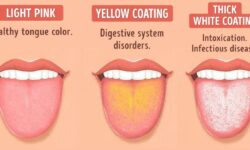9 Unhealthy Things You Need To Stop Now To Prevent The Risk of Alzheimer’s Symptoms

Alzheimer’s disease is a common neurological disorder that affects parts of the brain associated with speech, memory, and thinking. A 2019 study published in the Journal of Biomedical Research International reported that the risk of Alzheimer’s disease is more common in women than men.
Scary, eh?
Many of us know someone who might have dealt with this condition. For example, you either had a neighbor, friend, or relative with Alzheimer’s that might have needed special care.
While there is no proven cure for the disease, research has found that certain factors can increase the chances of this condition, most of which have to do with an unhealthy lifestyle.
Let’s look at what might cause these signs of Alzheimer’s and what you may do to prevent this disease.
Quick Navigation Hide
- What is Alzheimer’s?
- What are the symptoms of Alzheimer’s?
- What are the risk factors for Alzheimer’s disease?
- How can you prevent Alzheimer’s disease?
- 1. Get physically active
- 2. Control your blood sugar levels
- 3. Go for regular health tests
- 4. Change the eating habits
- 5. Improve your social interactions
- 6. Stay safe from head traumas and injuries
- 7. Quit smoking
- 8. Reduce alcohol consumption
- 9. Engage in healthy mental activities
- The Bottom Line
What is Alzheimer’s?
To put it simply, Alzheimer’s is a progressive brain disease caused by the accumulation of abnormal proteins in the brain. The most common sign of Alzheimer’s is dementia, defined as a loss of cognitive function, thinking, and memory.
It is a highly prevalent condition – most commonly diagnosed in individuals aged 65 and above. According to Alzheimer’s Association, about 2/3rd of the women in the US have some signs of Alzheimer’s.
They also reveal that about 10 million American women currently either have the symptoms of this neurological condition or know someone with it.
This disease is gaining momentum worldwide, and the numbers are only increasing each year. Hence, it has become critical for women to know what might put them at risk of Alzheimer’s so this dangerous disease can be avoided.
⚠️Fact: About 10 million American women currently have Alzheimer’s or know someone with this disease. ❗️❗️
What are the symptoms of Alzheimer’s?
The symptoms of Alzheimer’s are diverse and may vary from person to person. These signs may or may not be present, depending on the severity of the disease. According to Alzheimer’s Research, some of the most common symptoms of Alzheimer’s include:

- Loss of memory in the 30s or 40s
- Poor cognitive skills
- Difficulty in communication or forgetting recipes, familiar words, etc
- Not having an idea about time or day
- Inappropriate behaviors like aggression and mood changes
- Lack of confidence
- Repetitive activities or questions
- Problems recognizing family members or forgetting names
- Tendency to wander and get lost
If you notice any of the above symptoms in a loved one around you, it’s best to go for a quick check-up and determine if they might be at risk of Alzheimer’s symptoms.
What are the risk factors for Alzheimer’s disease?
Multiple factors can cause Alzheimer’s disease. However, most medical experts agree that signs of Alzheimer’s are usually caused by genetics, environmental conditions, age, medical issues, and an unhealthy or sedentary lifestyle.
Some of these are uncontrollable factors such as genes or age. But if you make specific changes in your lifestyle, it’s possible to prevent Alzheimer’s onset or delay the worst symptoms.
Per the National Health Service (NHS), the factors that might increase the risk of Alzheimer’s include:
- Previous complications like heart disease, diabetes, and high blood pressure
- Lack of exercise
- Poor dietary habits such as eating junk foods frequently
- Lack of social interaction or mental stimulation
- Not following safety when driving/playing sports
- Smoking
- Excessive alcohol consumption
How can you prevent Alzheimer’s disease?
While you cannot entirely prevent Alzheimer’s disease from occurring, there are a few ways through which you can reduce the risk:
1. Get physically active
Several studies have pointed out the link between heart disease symptoms and Alzheimer’s and concluded a positive correlation between the two. They found that 80% of Alzheimer’s patients also have complications like cholesterol and high blood pressure when investigated.
The best way to combat the risk of cardiovascular disease is to engage in moderate exercise every day. Exercising for as little as 150 minutes per week can effectively reduce the risk of developing CVD and help improve blood flow to the brain, minimizing the chances of Alzheimer’s, reports a 2019 research published in the OMCL Journal.
So if you want to reduce the risk of Alzheimer’s, get active and engage in some physical activity daily! Do yoga, try a new sport, or walk your pet every evening.
2. Control your blood sugar levels
Managing your blood glucose levels is vital for preventing Alzheimer’s disease. Unfortunately, this means that people who have disorders like diabetes are more likely to develop the disease.
There are two types of diabetes: type 1 diabetes and Type 2. Type 1 diabetics are typically reported in younger individuals, whereas type 2 mostly occurs in older ages.
If you have T1 diabetes you have 93% higher chance of getting Alzheimer’s! 😲🛑
Follow these tips so you can avoid this brain disease!!
A detailed study conducted by Alzheimer’s Association has proven that type 1 diabetics have 93% higher chances of developing dementia. In addition, people with Type 2 diabetes pose a higher risk of experiencing signs of Alzheimer’s in later life. This is because excessive sugar levels from diabetes may contribute to the increase of abnormal proteins in the brain – which is the hallmark of Alzheimer’s.
An excellent way to keep your diabetes in control is to keep your diet clean by minimizing sugar intake. Plus, you may want to be more physically active to manage the weight. Additionally, it’s essential to follow your doctor’s diabetes management plan.
3. Go for regular health tests
Yearly medical diagnostic tests are the best way to detect a condition that otherwise presents no symptoms.
With increasing age, you should try to go for regular health exams to avoid or seek timely treatment for life-threatening diseases such as breast cancer and even Alzheimer’s.
A health test can help you measure parameters like blood cholesterol, blood glucose, and blood pressure, which have been implicated in developing this condition. A new blood test was recently discovered that could provide an accurate Alzheimer’s diagnosis.
4. Change the eating habits
Healthy eating habits are essential for maintaining good health. A diet consisting of components like vegetables, fruits, and fish is vital for proper brain function and neuronal repair.
Eating the right kind of diet helps provide the brain with essential nutrients and improves heart health. This can further lower the risk of developing Alzheimer’s.

There’s no proper diet plan when it comes to preventing Alzheimer’s. However, some dietary approaches can be beneficial in lowering the risk of the disease. Some general tips include:
- Limiting sodium, red meats, and sugary beverages
- Consuming leafy green vegetables that are rich in beta carotene
- Eating healthy fats like nuts and olive oil
- Increasing intake of polyunsaturated fatty acids (omega-3 fatty acids) through fish, seafood oils, olive oil, nuts, or walnut oil
- Getting sufficient vitamin C through citrus fruits
- Boosting vitamin E in the body through supplements or food
You might also consider taking necessary memory-boosting supplements as you age. These dietary supplements are packed with nutrients that benefit brain health and prevent the risk of Alzheimer’s symptoms.
5. Improve your social interactions
Improving your social interactions may lower the risk of cognitive dysfunction and Alzheimer’s. Although this subject still has to be explored further, substantial evidence supports the case.
One theory is that mental stimulation via social interactions may lead to newer neuronal units in the brain, which improve brain function. In fact, a 2018 study shows that increasing your social activity can boost brain-derived neurotrophic factor (BDNF). If it’s low, you may be at risk of Alzheimer’s symptoms.
Another theory is that healthy social interactions may help reduce depression, which is also known to cause Alzheimer’s.
6. Stay safe from head traumas and injuries
Physical injuries pose a significant threat to the cognitive function of the brain.
Something as simple as a minor accident or a blow to the head may damage essential brain centers or compromise the blood flow to them, increasing the risk of Alzheimer’s disease.
To protect yourself from the threat of traumas, you should always buckle up when going out. You can practice safety by implementing the following steps:
- Wear appropriate headgear while playing sports or riding a motorcycle
- Refrain from driving under the influence of drugs or alcohol
- Prevent falls at home by keeping your house clean and getting rid of clutter
- Wear a seatbelt while driving
- Reduce chances of elderly accidents by giving them a stick to walk with
7. Quit smoking
Smoking is a critical risk factor for increasing the risk of dementia and Alzheimer’s because of high amounts of homocysteine. This chemical is toxic to the blood vessels and injures them.
Damage to the blood vessels in the brain may cause compromised blood flow leading to limited essential nutrients. Moreover, too much homocysteine may also raise the risk of stroke and cause the death of brain cells. Research found that active smokers have a 40% higher chance of getting Alzheimer’s than non-smokers.
Quit smoking not only to decrease the risk of Alzheimer’s symptoms directly but to prevent heart and lung diseases as well, which may contribute to neurological disorders.
You can quit smoking by talking to your doctor about alternatives like nicotine therapy or by joining support groups that can help you quit your addiction.

8. Reduce alcohol consumption
Studies suggest that long-term drinking can cause irreversible damage to the brain’s tissues, leading to Alzheimer’s. It reduces the amount of Vitamin thiamine B1, which is integral for normal brain function.
According to the US Department of Agriculture and dietary guidelines, women should stick to one drink per day, whereas men can drink up to two.
If you are struggling with alcohol addiction, consider contacting a support group or going for addiction therapy.
9. Engage in healthy mental activities
Mental activity may help prevent cognitive decline as well and diminish the risk of Alzheimer’s symptoms.
One of the earliest signs of Alzheimer’s involves delusion and loss of personality traits, and a way to minimize that is to improve cognitive function via mental stimulation.
There are many self-care activities you can engage in to improve your mental wellbeing. Try challenging your mind by doing a few of these things:
- Maintain a journal for art or writing about your feelings
- Volunteer in charity or support groups
- Read a new book every week
- Learn a new language or an instrument
- Play games like crossword or sudoku
- Find a new hobby or play a new sport
The Bottom Line
Alzheimer’s disease is a progressive brain disorder without a known cure. It is a condition that gets worse with time. If you want to know exactly how challenging this journey can be, I suggest watching Still Alice. Worthy of its Oscar-win, this movie perfectly depicts how Alzheimer’s slowly creeps up on you and damages the mind bit by bit.
You might be able to delay the risk of Alzheimer’s by implementing the changes mentioned above in your lifestyle. Simple changes like quitting smoking, eating healthier, and exercising can help decrease the likelihood of getting this debilitating disease.
References
- https://www.nia.nih.gov/health/what-are-signs-alzheimers-disease
- https://www.health.harvard.edu/alzheimers-and-dementia/what-can-you-do-to-avoid-alzheimers-disease
- https://www.nhs.uk/conditions/alzheimers-disease/prevention/
- https://www.mayoclinic.org/diseases-conditions/alzheimers-disease/symptoms-causes/syc-20350447
- https://www.webmd.com/alzheimers/guide/understanding-alzheimers-disease-prevention


